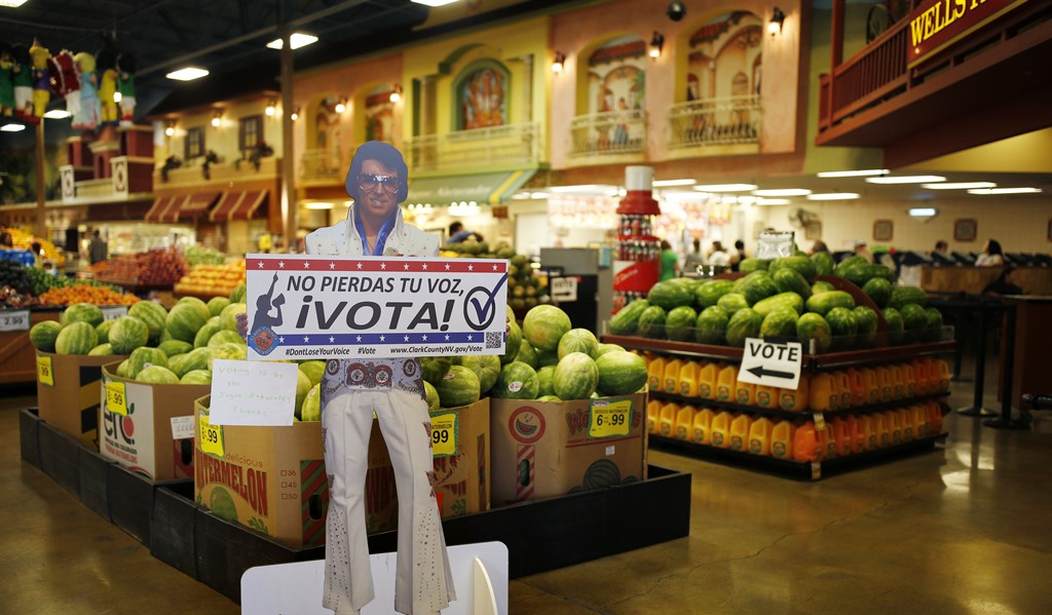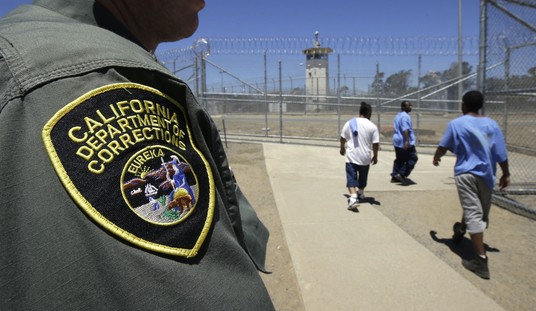There are going to be a lot of stories told about how and why Donald Trump won the 2024 election but one of the clear contributors to the win is the rightward shift of Hispanic voters. Trump set a new high-water mark with Hispanic voters this year, beating out the previous record set by George W. Bush twenty years ago.
Latino voters took a big right turn in an election dominated by voter outrage over the high cost of food and housing, helping Donald Trump secure a second term in the White House.
Vice President Kamala Harris finished with a slim majority of support from Hispanic voters, at 53%, while Trump vacuumed up about 45% of the vote, a 13-point increase from 2020 and a record high for a Republican presidential nominee, according to NBC News exit polls.
Trump’s Hispanic vote percentage beat the previous record, set by George W. Bush's in 2004, when Bush won as much as 44% of the Hispanic vote.
Trump won a majority of Hispanic men, according to exit polling.
In counties where more than 20% of voting-age Americans were Hispanic, Trump's margin over Democratic Vice President Kamala Harris improved by 13 points relative to his 2020 performance against Biden.
"Young Hispanics do not have the same muscle memory as their grandparents who voted for Democrats for 50 years," said Giancarlo Sopo, a Republican media strategist who worked on Hispanic outreach for Trump's 2020 campaign.
This time, Trump won 55% of Hispanic men, 19 points more than the 36% share he won four years earlier, while he garnered support from 38% of Hispanic women, up 8 points from 2020.
This shift appears to have been particularly strong in swing states that Trump won, but he made progress everywhere.
In Michigan, for example, Trump won a whopping 58% of Latino voters compared to just 39% for Harris, according to the Edison poll.
Harris and Trump tied among Latino voters in North Carolina and Nevada...
Trump beat Harris 51-49 in Hidalgo County, in South Texas — a Mexican American stronghold that Biden won with 58% of the vote in 2020.
The backstory here is that Democrats have been saying for more than a decade that demographics are destiny. The big idea was that as the country gradually became less white and more Hispanic, Democrats would at some point have a lock on electoral politics. But of course that assumed minorities would continue to vote overwhelmingly for Democrats. This year that doesn't seem to be the case. And it wasn't just Hispanics who shifted right.
Mr. Trump’s gains with Black voters were less significant but still notable in smaller communities across Georgia. Hancock, Talbot and Jefferson Counties, all majority-Black counties with no more than 15,000 people, shifted toward Mr. Trump. The Trump campaign celebrated a victory in Baldwin County, Ga., where 42 percent of the population is Black. Republicans had not won the county for decades.
Asian American voters, who make up the fastest-growing eligible electorate in the country, also appeared to have drifted away from Democrats, according to exit polls and unofficial returns.
“The strength of Trump’s reach into the traditional Democratic coalition of voters of color was stunning,” said Daniel HoSang, a professor at Yale who has written about the rise of right-wing political attitudes among minority groups.
There's a big story yet to be written here about the breakdown of identity politics. Progressive Democrats have been explicitly pushing those ideas for about 10 years now, dividing people into racial categories and framing those categories as essential parts of their identity, oppressor vs. oppressed. For a time it seemed to be working, but no longer. We're definitely seeing a backlash to identity politics in these results. The big question is whether it's a passing trend or a more permanent one.
If the trend does continue, it's possibly to imagine a near future, maybe even in 2028, where the GOP wins the Hispanic vote outright and maybe splits the vote among Black Americans more evenly than it has in the past (say 70-30). If that were to happen, the political salience of identity politics becomes even shakier than it is now. It will be hard to frame politics under the over-arching theme of "white supremacy" and "white privilege" if the minority vote (again, in the near future) is nearly evenly split between the two parties.
This shift could shake up politics on both sides of the aisle. If Hispanic voters start reliably splitting their votes or even favoring the GOP, will Republicans feel differently about the amount of legal immigration they support? Will Democrats be less enthusiastic about a pathway to citizenship for immigrants if they know a majority of newly minted citizens will be voting for the GOP? It's too early to tell but I suspect that the first time the GOP wins the Hispanic vote outright (if that happens in, say, four or eight years) it's going to scramble the politics of race in ways that are currently hard to imagine.







Join the conversation as a VIP Member